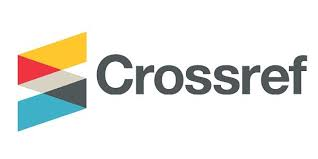PENGARUH PENDEKATAN KONTEKSTUAL BERBASIS E-LEARNING ZOOM CLOUD MEETING TERHADAP PEMAHAMAN KONSEP RADIASI BENDA HITAM MAHASISWA
DOI:
https://doi.org/10.37478/optika.v6i1.1884Abstract
This study aims to determine the effect of a contextual approach based on e-learning on the understanding of the concept of black body radiation students of the Physics Education Study Program at the University of Flores. This type of research is quantitative research, with descriptive statistical analysis and inferential statistics to describe data on understanding the concept of black body radiation for students of the Physics Education Study Program at the University of Flores in quantum physics courses using a contextual approach based on e-learning. The data collection technique used in this research is a test technique. From the results of descriptive analysis shows that the average student learning outcomes are 79.80 which is in the sufficient category. While the results of inferential statistics show the t-count value of 5, 378, sig(2-tailed) 0.000. Because the value of sig(2-tailed) 0.000 is smaller than 0.05, this indicates that the contextual approach based on e-learning has an effect on understanding the concept of black body radiation for students of the Physics Education Study Program, University of Flores.
Downloads
Keywords:
Contextual Approach, E-learning, Zoom Cloud Meeting, Concept Understanding, Black Body RadiationReferences
Abbas, A., & M.Yusuf Hidayat, 2018, faktor-Faktor Kesulitan Belajar Fisika pada Peserta Didik Kelas IPA Sekolah Menengah Atas, JPF:Jurnal Pendidikan Fisika Universitas Islam Negeri Alauddin Makassar, Vol.6, pp 45-49
ANAM, Liu., & Ilyas. (2020). Persepsi Mahasiswa dalam Implementasi Pembelajaran Online Berbasis Zoom Cloud Meeting Mahasiswa Program Studi Pendidikan Fisika Universitas Flores. OPTIKA: Jurnal Pendidikan Fisika Universitas Flores. 4 (2), pp 85-90
Ardiansyah, Ivan. 2013. Eksplorasi Pola Komunikasi dalam Diskusi Menggunakan Moddle pada Perkuliahan Simulasi Pembelajaran Kimia, Universitas Pendidikan Indonesia, Bandung-Indonesia.
Chandrawati, Sri Rahayu. 2010. Pemanfaatan E-learning dalam Pembelajaran. Jurnal Cakrawala Kependidikan. No 2 Vol. 8.
Farida, C. A., Murniati, & Khairuddin. (2014). Supervisi Pengajaran Oleh Kepala Sekolah untuk Meningkatkan Kinerja Guru di SMP Negeri 12 Banda Aceh. Jurnal Administrasi Pendidikan, 4(2), pp 133–156.
Gani, A. (2015). Pengaruh Model Pembelajaran dan Persepsi Tentang Matematika Terhadap Minat dan Hasil Belajar Matematika Siswa SMP Negeri Di Kecamatan Salomekko Kabupaten Bone. Jurnal Daya Matematis, 3(3), pp 337–343.
Ilyas., & ANAM Liu. 2019. The Development of physic learning Tools Based on Contextual Teaching and Learning in a Remote Island Area. Jurnal Pendidikan Fisika Universitas Muhammadiyah Makassar. 7(1), pp 1-8.
Ilyas., & ANAM Liu. 2021. Use of mind mapping learning models to improve understanding of kinematics concepts. AIP Conference Proceedings. 1 (2320), 020026
Juleha, S., Khuzaemah, E., & Cahyani, D. (2014). Penerapan Strategi Belajar Murder untuk Meningkatkan Penguasaan Konsep Siswa pada Pembelajaran Biologi Kelas VIII MTs Al-Ikhlas Setupatok Cirebon. Science Educatia, 3(2), pp 95–109
Allen, Michael. 2013. Michael Allen’s Guide to E-learning. Canada : John Wiley & Sons
Muzakar. (2014). Kinerja Kepala Sekolah dalam Meningkatkan Mutu Lulusan pada Madrasah Tsanawiyah Negeri Meureubo. Jurnal Ilmiah Islam Futura, 4(1), pp 110–133
Nursalam dan Ferry Efendi. 2008. Pendidikan dalam Keperawatan. Jakarta: Salemba Medika
Pranoto, Alvini.dkk. 2009. Sains dan Teknologi. Jakarta: PT Gramedia Pustaka Utama
Sujana, Janti Gristinawati dan Yuyu Yulia. 2005. Perkembangan Perpustakaan di Indonesia. Bogor: IPB Press
Sudjana, N. (2009). Penilaian Hasil Proses Belajar Mengajar . Sinarbaru, Bandung
Trianto, 2008. Mendesain Pembelajaran Kontekstual di Kelas. Jakarta: Cerdas Pustaka Publisher.
Downloads
Published
How to Cite
Issue
Section
License
Jurnal Lesensi











